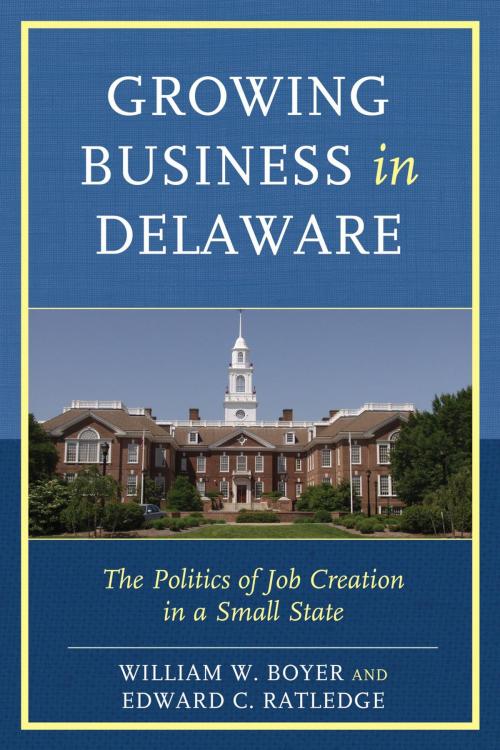Growing Business in Delaware
The Politics of Job Creation in a Small State
Business & Finance, Career Planning & Job Hunting, Careers| Author: | Edward C. Ratledge, William W. Boyer | ISBN: | 9781611495959 |
| Publisher: | University of Delaware Press | Publication: | December 9, 2015 |
| Imprint: | University of Delaware Press | Language: | English |
| Author: | Edward C. Ratledge, William W. Boyer |
| ISBN: | 9781611495959 |
| Publisher: | University of Delaware Press |
| Publication: | December 9, 2015 |
| Imprint: | University of Delaware Press |
| Language: | English |
In this fourth book by the authors' about public affairs in Delaware, the state's strategies to maintain a business-friendly environment are examined, especially by awarding grants and loans to grow businesses and jobs. The book addresses the nation's 2008-2014 Great Recession that was very severe in Delaware. Among the large Delaware employers that disappeared were Chrysler, General Motors, and Avon. Meanwhile, DuPont cut many jobs, while MBNA's sale to Bank of America also caused many job losses. This small state's efforts to deal with this overwhelming crisis are analyzed. Accordingly, the book is timely regarding politics and policy choices involving jobs, competition with other states, and a host of other problems.
Among the features analyzed are: the state’s transition from a passive to a proactive management
approach, in-depth analyses of certain prominent companies awarded state funding to create jobs, as well as a broader spectrum of firms receiving similar kinds of subsidies to create or retain employment , along with the permeation of politics involving variously the media, political parties, special interests, government, business leaders, citizen groups. The authors conclude, what lessons they have learned from their study.
In this fourth book by the authors' about public affairs in Delaware, the state's strategies to maintain a business-friendly environment are examined, especially by awarding grants and loans to grow businesses and jobs. The book addresses the nation's 2008-2014 Great Recession that was very severe in Delaware. Among the large Delaware employers that disappeared were Chrysler, General Motors, and Avon. Meanwhile, DuPont cut many jobs, while MBNA's sale to Bank of America also caused many job losses. This small state's efforts to deal with this overwhelming crisis are analyzed. Accordingly, the book is timely regarding politics and policy choices involving jobs, competition with other states, and a host of other problems.
Among the features analyzed are: the state’s transition from a passive to a proactive management
approach, in-depth analyses of certain prominent companies awarded state funding to create jobs, as well as a broader spectrum of firms receiving similar kinds of subsidies to create or retain employment , along with the permeation of politics involving variously the media, political parties, special interests, government, business leaders, citizen groups. The authors conclude, what lessons they have learned from their study.















